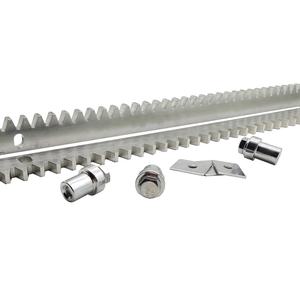Choosing the ideal oil for photocopy machine gears made of plastic or nylon is essential to making sure ideal efficiency, durability, and integrity of the tools. Gears in photo copiers are generally engineered from light-weight polymers such as nylon or acetal to minimize noise, weight, and cost. Nevertheless, these products have unique lubrication needs that differ from metal equipments, making oil selection a specialized process. Trick factors to consider include chemical compatibility, thermal security, thickness, and load-bearing capability.
(what grease is best for copy machine gears plastic nylon)
** Material Compatibility **.
Plastics and nylons are prone to destruction when revealed to certain lube solutions. Petroleum-based greases, as an example, can cause swelling, splitting, or embrittlement in polymers over time. To prevent this, synthetic oils developed particularly for plastic components are excellent. Silicone-based oils are widely suggested because of their inert chemical buildings, which decrease interaction with plastics. They keep security without causing architectural harm. PTFE (polytetrafluoroethylene)- improved oils are one more viable option, as they use low friction and high wear resistance while staying compatible with nylon and plastic equipments.
** Thermal Stability **.
Photocopier produce warm during operation, especially near fusers, electric motors, or high-speed equipment assemblies. The grease should withstand temperature levels generally ranging from -20 ° C to 150 ° C without damaging down, oxidizing, or vaporizing. Silicone-based greases excel in this respect, keeping their uniformity across a wide temperature level array. Lithium-complex oils, while usual in industrial applications, ought to only be used if explicitly identified as risk-free for plastics, as some variants may divide under warmth and concession lubrication.
** Viscosity and NLGI Grade **.
The oil should balance bond and fluidness to remain in location without hampering gear movement. A semi-fluid uniformity (NLGI Quality 1 or 2) is normally optimum for plastic gears, making sure very easy application and even circulation. High-viscosity greases (NLGI Quality 3+) may increase drag, while low-viscosity options might migrate far from get in touch with factors. PTFE-thickened greases often strike this balance, offering long-lasting protection without hardening gradually.
** Load and Use Resistance **.
Although plastic equipments operate under lighter tons contrasted to metal gears, they still call for defense against wear. Oils fortified with strong lubricants like PTFE or molybdenum disulfide lower friction and prevent matching or contortion. However, ingredients need to be non-abrasive and chemically neutral to avoid harming the equipment surface areas.
** Application Best Practices **.
Apply oil sparingly to avoid drawing in dirt or particles, which can increase wear. Clean equipments extensively prior to re-lubrication, and use a lint-free applicator to guarantee accuracy. Conduct compatibility tests on a little section of the equipment or an extra element prior to full-scale application to verify that the grease does not create swelling or staining.
** Suggested Oil Kind **.
1. ** Silicone-Based Oils **: Brand Names like Super Lube 21030 or Dow Corning High-Vacuum Grease deal excellent thermal security and plastic compatibility.
2. ** PTFE Greases **: Molykote EM-30L or DuPont Krytox GPL series supply low rubbing and lengthy life span.
3. ** Specialty Plastic-Safe Greases **: Permatex 22058 or Lubri-Plast L226 are formulated clearly for polymer components.
Stay clear of auto or commercial oils not labeled for plastic use, as these commonly have incompatible additives. Regular upkeep checks need to consist of evaluating equipments for indications of oil destruction, such as discoloration or hardening, and reapplying as required.
(what grease is best for copy machine gears plastic nylon)
Finally, silicone or PTFE-based oils with medium thickness, thermal durability, and polymer-safe additives are optimal for copy machine gears. Focusing on material compatibility and performance under functional conditions will certainly extend gear life, minimize downtime, and maintain the copier’s effectiveness. Constantly seek advice from the devices manufacturer’s guidelines and conduct compatibility tests to verify grease viability.


